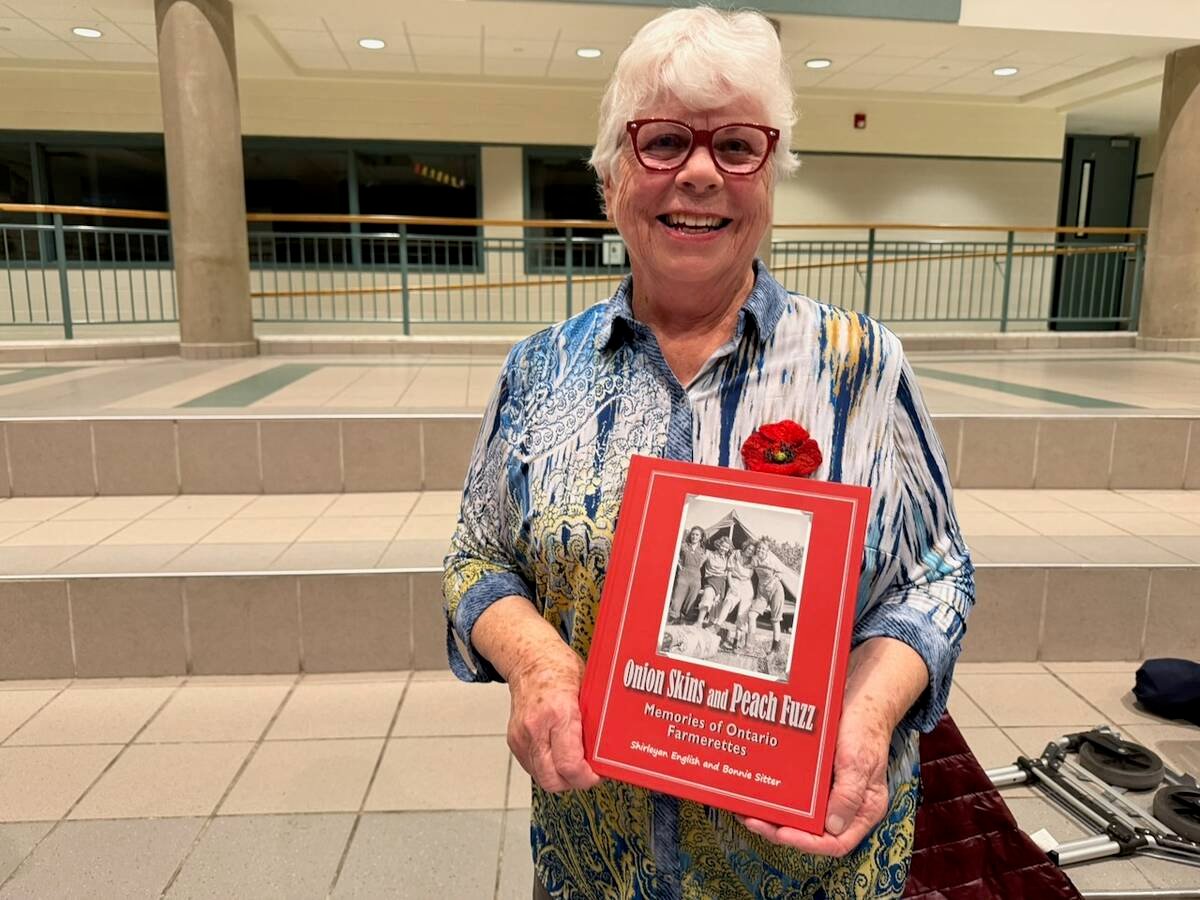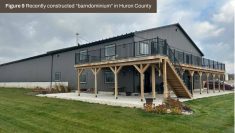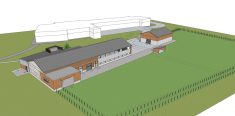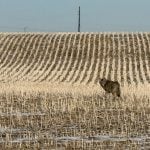“It was a mistake to open the Greenbelt.”
With that, Premier Doug Ford pledged to reverse the changes to Greenbelt and promised no future changes.
“I made a promise to you I would not touch the Greenbelt. I broke that promise,” he said during the Sept. 21 press conference in Niagara Falls. “And for that, I’m very, very sorry. I pride myself on keeping promises.”
Read Also

Women who fed a nation
More than 40,000 young women supported the war effort between the 1940s and early 1950s, helping grow and harvest crops amid labour shortages. They were called Farmerettes.
Why it matters: The acres of land proposed to be taken out of the Greenbelt for development prompted concerns from agriculture groups about what other protected areas could be opened for development.
Last fall, the Ontario government introduced Bill 23, the More Homes Built Faster Act, followed by an announcement to remove 7,400 acres from the Greenbelt, mostly within the greater Toronto area. The government then said it would add 9,400 acres to the Greenbelt, within the Paris Galt Moraine and 13 urban river valleys in the Greater Golden Horseshoe.
In addition to the returning 7,400 acres, Ford said the 9,400 acres the province added to the Greenbelt will remain within the boundaries.
“I believe that opening the Greenbelt could make a big difference. That it would build 50,000 new homes, housing a minimum of 150,00 people,” he explained. “But we moved too quickly and made the wrong decision.”
Ford said addressing Ontario’s rapidly growing housing crisis will require increased, affordable, and accessible diverse housing options.
“We need to change the way we build these homes, building more density, and growing cities close to transit,” he said. “Using modular homes to make housing attainable, to build starter homes for new families and newcomers.”
He pledged to speed up approvals by cutting through red tape and holding builders and municipalities accountable for delivering on their commitments.
“I’ve heard from our municipal partners; they’re ready to build, and they have the land to do so,” Ford finished.
Ford sidestepped directly answering why it took legislative reports, public uproar, and several resignations to trigger the reversal, saying, “When they came to me and said this will produce homes and roofs over people’s heads for a minimum of 150,000 people, you’ll have a hospital, and you’ll have long term care – I felt we needed to move.”
Facing calls to address the consequences he should face, Ford said leadership is admitting to your mistakes, explaining how you’ll correct them, and following through, which he was doing.
In a November 2022 Farmtario article, Wayne Caldwell, professor of rural planning and development at the University of Guelph, said he couldn’t “recall a time when the government moved so powerfully to override the wants and desires of communities regarding their growth trajectory.”
He said the More Homes Built Faster Act diminished the rights and responsibilities of individual citizens to engage in the planning process and influence policy. It also modified a decades-old balance of accommodating urban development.
“That was a balance of trying to accommodate urban development in the context of appropriate growth, into appropriate locations, at appropriate densities, with appropriate timing,” he told Farmtario.
At the time, the province’s rejection and amendments overrode Hamilton city planners’ plan to meet growth targets through denser development while maintaining a healthy, productive farmland base around the urban boundary and forcing them to open predominately prime agricultural land for development.
The Ontario Federation of Agriculture (OFA) spoke out against several aspects of the Act while attempting to find workable solutions that protected Ontario’s finite farmland supplies and address the housing crisis.
“We remain supportive of the government’s plan to address this by building within existing urban boundaries, utilizing underdeveloped areas, reclaiming abandoned industrial lands, and building up instead of out,” said OFA president Peggy Brekveld in a statement responding to the land reversal.
Max Hansgen, National Farmers Union – Ontario (NFU-O), attributed Ford’s turnabout to a year-long effort from farmers, Indigenous people, media, environmental groups, and affordable housing advocates pushing against the province’s More Homes Built Faster Act.















